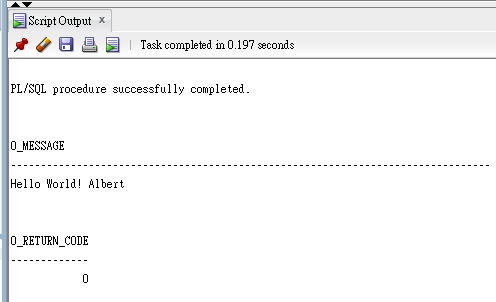I would like to generate HTML file as bellows:
<html> <body> <p>Hello Albert! You have the following messages: <li><b>Tim:</b> Please don't forget to bring the laptop!</li> <li><b>Cindy:</b> Can you give me a visit this afternoon?</li> <li><b>Richard:</b> Don't forget the papers this time!</li> <li><b>Mom:</b> Don't forget the milk this time!</li> </p> </body> </html>
FTL template file
<html> <body> <p>Hello ${name}! You have the following messages: <#if messages??> <#-- if message has data, get data via iteration https://freemarker.apache.org/docs/ref_directive_if.html --> <#list messages as m> <li><b>${m.from}:</b> ${m.body}</li> </#list> <#else> <#-- if message is null, then show NO Message Found --> No Message Found! </#if> </p> </body> </html>
Test Case
package com.test.batch; import com.test.batch.exception.FtlException; import freemarker.template.Configuration; import freemarker.template.Template; import freemarker.template.TemplateException; import lombok.Builder; import lombok.Getter; import lombok.extern.slf4j.Slf4j; import org.junit.Before; import org.junit.Test; import org.junit.runner.RunWith; import org.springframework.boot.test.context.SpringBootTest; import org.springframework.test.context.junit4.SpringRunner; import java.io.File; import java.io.FileWriter; import java.io.IOException; import java.io.Writer; import java.util.ArrayList; import java.util.HashMap; import java.util.List; import java.util.Map; @RunWith(SpringRunner.class) @SpringBootTest @Slf4j public class FtlTest { private Configuration cfg; @Before public void init() { cfg = new Configuration(); // 設定到 classpath 讀取 ftl file cfg.setClassForTemplateLoading(this.getClass(), "/"); } @Test public void testMessageHtml() { try (Writer file = new FileWriter(new File("C:/ftl_message.html"));) { Template template = cfg.getTemplate("ftl/message.ftl"); Map<String, Object> data = new HashMap<>(); data.put("name", "Albert"); List<Message> messages = new ArrayList<>(); messages.add(Message.builder().from("Tim").body("Please don't forget to bring the laptop!").build()); messages.add(Message.builder().from("Cindy").body("Can you give me a visit this afternoon?").build()); messages.add(Message.builder().from("Richard").body("Don't forget the papers this time!").build()); messages.add(Message.builder().from("Mom").body("Don't forget the milk this time!").build()); data.put("messages", messages); template.process(data, file); } catch (IOException | TemplateException e) { throw new FtlException("fail to generate file from ftl file : " + e.getMessage(), e); } } @Getter @Builder public static class Message { private String from; private String body; } }








